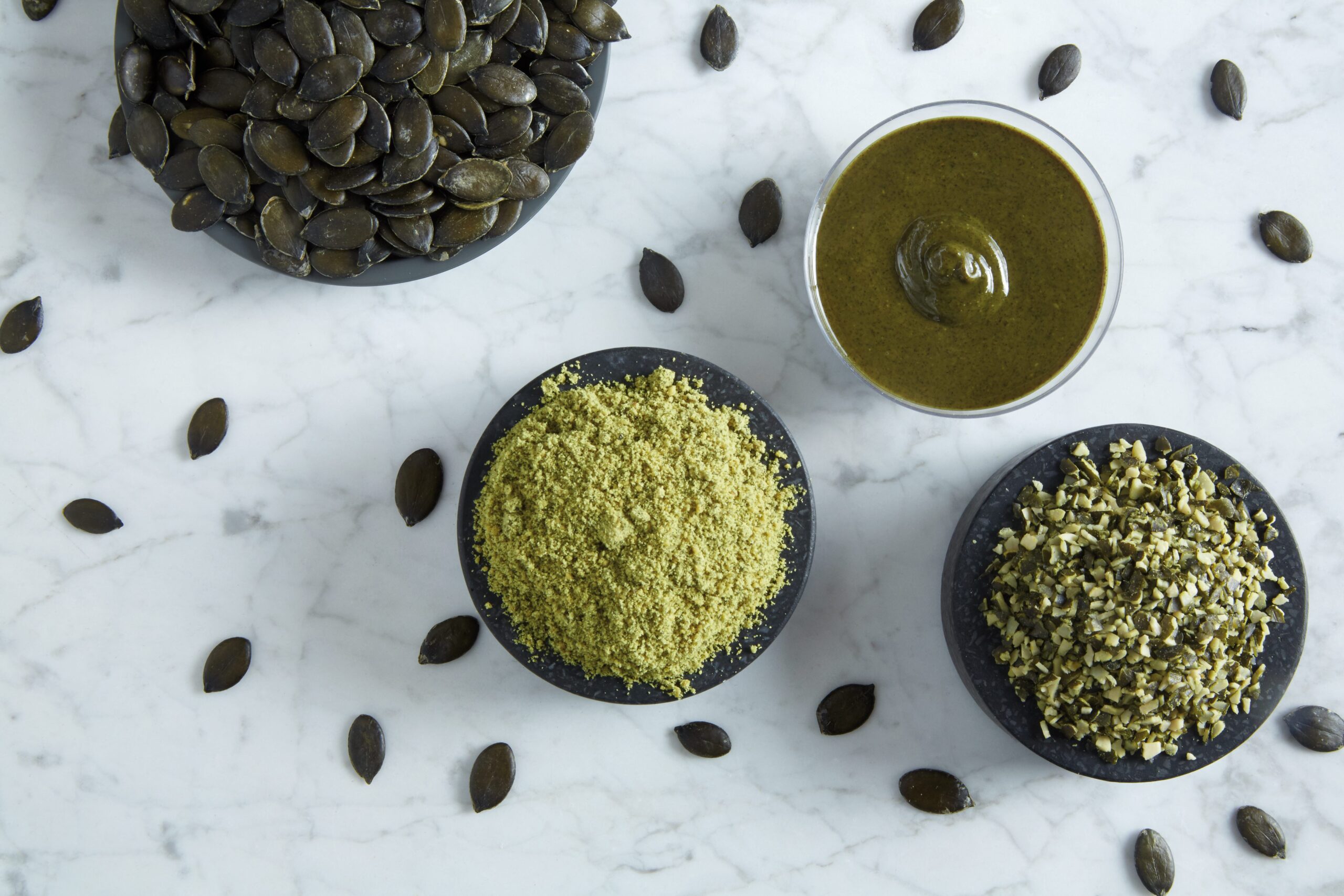Keeping up with rising consumer demand for plant-based proteins
In line with nutritional recommendations, more and more French people are looking to increase their consumption of plant-based proteins. Over the past 10 years, the number of flexitarians in France has increased significantly: 49% of households have switched to a flexitarian diet, compared with 25% in 2012*, with vegetarians or vegans representing 2.2% of consumers. The food industry is responding to this rising demand by developing ranges of plant-based products. “We draw on the benefits of seeds to offer a wide range of natural ingredients, enabling professionals to create finished products with a 100% plant-based formulation”, explains Gatien Dusaussoy. As an expert in oilseed, pseudograin, grain and pulse processing, the company relies on simple processing methods (sorting, microbial decontamination, toasting, grinding, transforming into purée and crushing) to exploit their nutritional value and technical advantages. Flanquart produces conventional and organic versions of its staple products.
Natural ingredients for minimally processed products
One of the main obstacles preventing the rise of plant-based alternatives to dairy products, animal fats and meat is consumer concern about an unpleasant taste. This is the case for 42% of consumers*. Other drawbacks include texture (32%), followed by reservations about any unnatural ingredients, additives, preservatives and flavour enhancers used to make these products (28%). Flanquart’s solutions use whole seeds, allowing for more concise and natural formulas than most vegan market staples. In flours or purées, seeds can help optimise and reduce the ingredients in many recipes. They have a noticeable effect on both texture and flavour, while naturally providing essential nutrients. “In a cereal bar, an oilseed purée and a mucilaginous seed flour, such as flaxseeds or chia, bind the ingredients together, optimising product quality. This also reduces or even eliminates the use of sweeteners such as glucose syrup. All this with maximised fibre content”. The plant taste, which can put consumers off, is balanced out especially by toasting or caramelising the seeds beforehand. “This brings out notes of hazelnut and praline”. Since many years Flanquart produces sesame seeds purée (as well called Tahini) for European market. Seed purees can be used in a wide range of applications: bread, pastries, granolas and muesli, desserts, ice creams, spreads, chocolates, vegetable cakes, plant milks, sauces and culinary aids. Oilseed purées can be used for baking, replacing all or part of the butter in loaves of bread, pastries and buns. Flanquart seeds flours enhance the flavour, preserving bread’s freshness and moisture.
 Preserving nutritional value
Preserving nutritional value
Once it has been fully processed (after any husking), the seed retains its nutritional value. Flaxseeds, sunflower, pumpkin, hemp, chia, sesame, millet, amaranth and pulses are rich in plant proteins (between 18% and 35%) and provide unsaturated fatty acids (omega 3, 6 and 9). All seeds are also sources of fibre (between 4.5% and 24.5%), vitamins and minerals (phosphorus, potassium, magnesium, calcium, iron and zinc). Their nutritional and health benefits can be promoted and they can improve the finished product’s Nutri-Score. These solutions therefore help to reach the recommendations of the French National Nutrition and Health Programme (PNNS 2019–2023), which promote increasing fibre, reducing salt and sugar and limiting the consumption of highly processed products. “Thanks to our experience, we are able to help people choose seed solutions with the best formulas, in line with producing E-free or substitution solutions, for both organic and conventional products”, says Gatien Dusaussoy. We can design new customised ingredients to meet the needs of the food industry”.
(*): Kantar World Panel (Huffington Post, January 2022).




 Preserving nutritional value
Preserving nutritional value